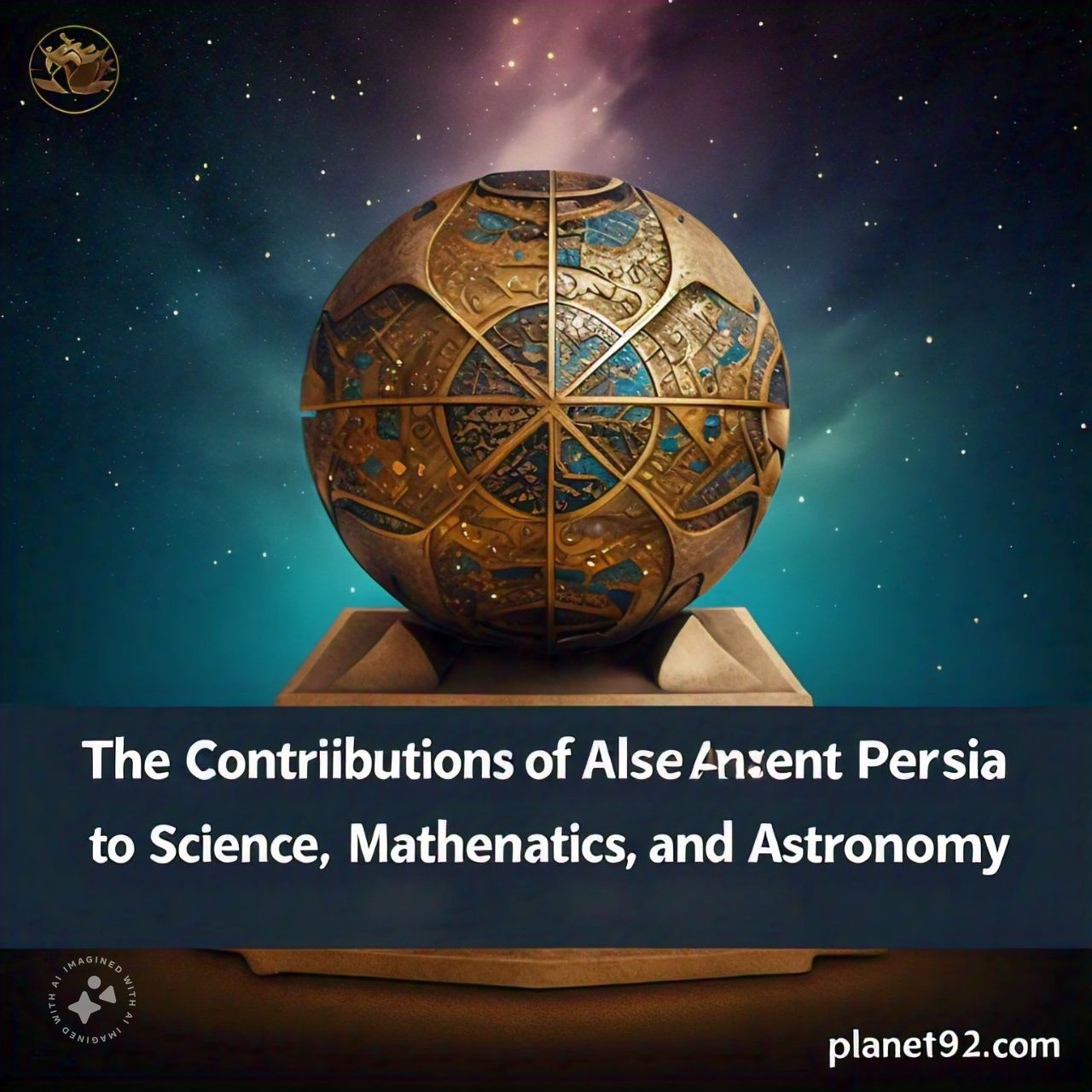The Contributions of Ancient Persia to Science, Mathematics, and Astronomy
Introduction
Ancient Persia, encompassing several great empires such as the Achaemenid, Parthian, and Sassanian, made significant contributions to the fields of science, mathematics, and astronomy. These advancements laid the groundwork for future developments in these disciplines and influenced both the Islamic Golden Age and the Renaissance. This article explores the remarkable achievements of ancient Persian scholars and scientists, highlighting their impact on the intellectual heritage of the world.
Scientific Achievements in Ancient Persia
Ancient Persian contributions to science were diverse and influential, spanning various fields from medicine to chemistry. Persian scholars built upon the knowledge of earlier civilizations, such as Mesopotamia and Egypt, and made substantial advancements of their own.
- Medicine:
- Avicenna (Ibn Sina): One of the most renowned Persian scholars in medicine was Avicenna, whose works, especially “The Canon of Medicine,” became standard texts in both the Islamic world and Europe. His contributions included detailed descriptions of various diseases, medicinal plants, and pharmacology.
- Medical Practices: Persian physicians developed sophisticated techniques in surgery, pharmacology, and diagnostics. They emphasized the use of herbal remedies and the importance of hygiene and diet in maintaining health.
- Chemistry:
- Al-Razi (Rhazes): Al-Razi was a prominent Persian chemist and physician who wrote the influential work “Kitab al-Hawi” (The Complete Book of Medicine). His contributions to chemistry include the development of distillation techniques and the discovery of various chemical substances.
- Alchemy: Persian alchemists, such as Jabir ibn Hayyan (Geber), made significant strides in the field of alchemy, which laid the foundation for modern chemistry. They developed early techniques for distillation, crystallization, and the preparation of acids.
Mathematical Innovations
Ancient Persian mathematicians made critical advancements that influenced both Islamic and European mathematics. Their work covered a range of topics, from algebra to geometry.
- Algebra:
- Al-Khwarizmi: Known as the “father of algebra,” Al-Khwarizmi wrote “Al-Kitab al-Mukhtasar fi Hisab al-Jabr wal-Muqabala” (The Compendious Book on Calculation by Completion and Balancing). His systematic approach to solving linear and quadratic equations introduced the term “algebra” and significantly advanced the field.
- Mathematical Methods: Al-Khwarizmi’s work included methods for solving equations, calculating square roots, and developing algorithms, which became foundational for later mathematical developments in both the Islamic world and Europe.
- Geometry:
- Geometric Principles: Persian mathematicians contributed to the understanding of geometric principles and their applications in architecture and astronomy. Their work included studies on geometric shapes, trigonometry, and the use of geometry in practical problems.
Astronomical Achievements
Astronomy was a major area of interest for ancient Persian scholars, who made substantial contributions to the field through observations, mathematical models, and innovations in astronomical instruments.
- Observatories and Instruments:
- Observatories: The Persian Empire established some of the earliest astronomical observatories, such as the one at Ray (modern-day Tehran). These observatories played a crucial role in the study of celestial phenomena and the development of accurate astronomical tables.
- Astronomical Instruments: Persian astronomers invented and refined various instruments for observing the heavens, including astrolabes and armillary spheres. These tools were essential for making precise astronomical measurements and calculations.
- Astronomical Theories:
- Al-Biruni: Al-Biruni, a renowned Persian polymath, made significant contributions to astronomy with his work “Kitab al-Qanun al-Masudi” (The Mas’udi Canon). He developed methods for determining the Earth’s radius and wrote about the movements of celestial bodies.
- Ptolemaic System: Persian astronomers adopted and adapted the Ptolemaic system of astronomy, incorporating it into their own models. They made corrections and refinements based on their observations, which influenced later astronomical developments.

Influence on Later Cultures
The scientific, mathematical, and astronomical advancements of ancient Persia had a profound impact on later cultures, especially during the Islamic Golden Age and the European Renaissance.
- Islamic Golden Age:
- Transmission of Knowledge: Persian scholars’ works were translated into Arabic and Latin, facilitating the transmission of knowledge to the Islamic world and Europe. This exchange of ideas helped to preserve and expand upon ancient Persian achievements.
- Scientific Developments: Persian contributions to science and mathematics were integrated into the broader Islamic scientific tradition, influencing later developments in these fields and shaping the intellectual landscape of the Middle Ages.
- European Renaissance:
- Reintroduction of Classical Knowledge: During the European Renaissance, Persian scientific and mathematical works were rediscovered and studied, leading to a revival of classical knowledge and the advancement of science and mathematics in Europe.
- Impact on Western Science: The methods and discoveries of Persian scholars, such as those of Al-Khwarizmi and Al-Razi, were instrumental in the development of modern science and mathematics. Their work laid the foundation for many scientific principles that continue to be relevant today.
Conclusion
The ancient Persian civilization made remarkable contributions to science, mathematics, and astronomy that have had a lasting impact on the world. Through their innovations and discoveries, Persian scholars advanced our understanding of various disciplines and influenced the development of later scientific and mathematical traditions. The legacy of ancient Persia’s intellectual achievements continues to be recognized and appreciated, highlighting the profound role that this ancient civilization played in shaping the course of human knowledge and discovery.









